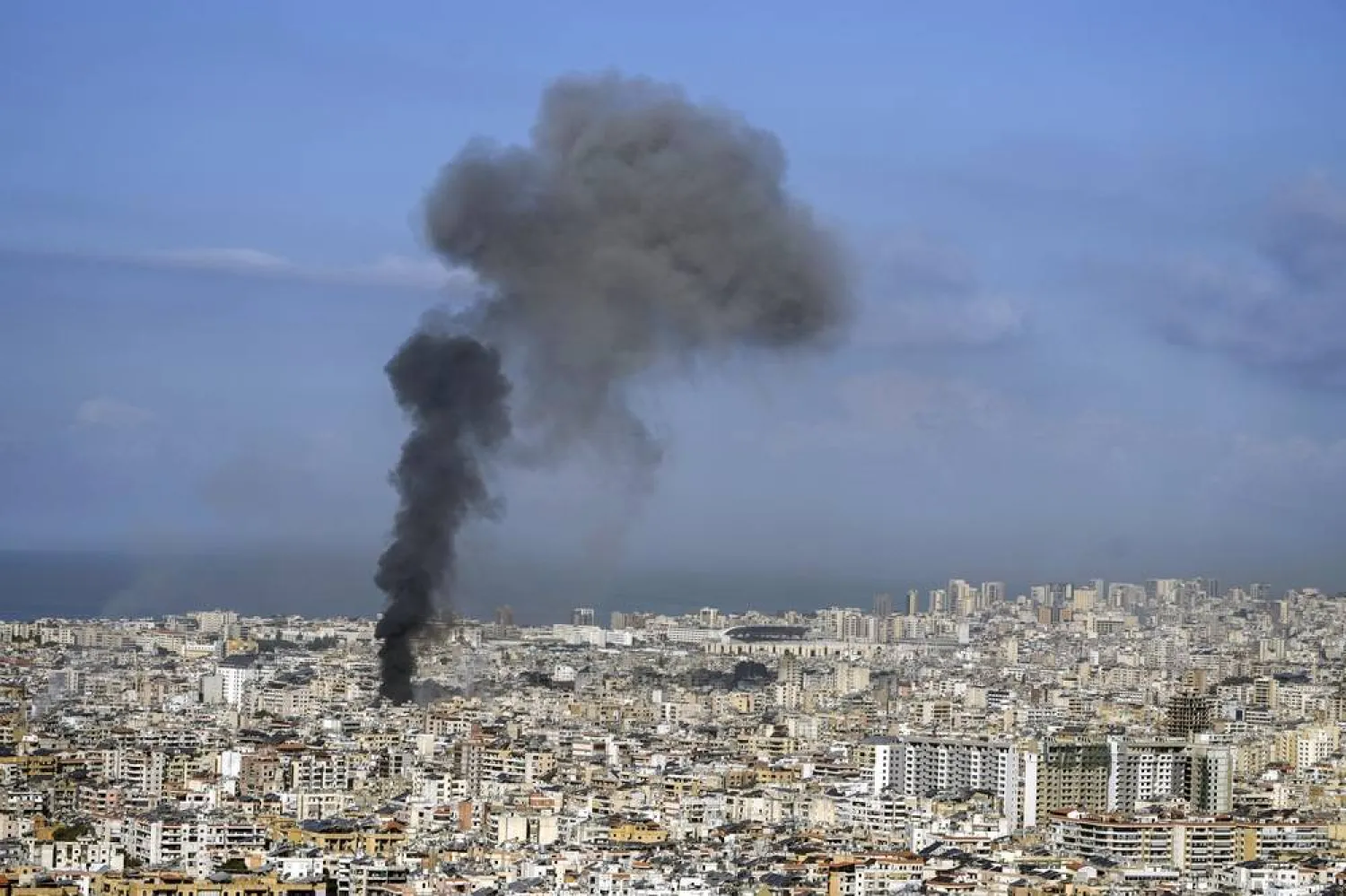Israeli ground forces reached their deepest point in Lebanon since they invaded six weeks ago before pulling back Saturday after battles with Hezbollah, Lebanese state media reported.
The clashes and further Israeli bombardment of Beirut's southern suburbs, a Hezbollah stronghold, came as Lebanese and Hezbollah officials study a draft proposal presented by the US earlier this week on ending the war.
Israeli troops briefly captured a strategic hill in the southern Lebanese village of Chamaa, about 5 kilometers (3 miles) from the Israeli border, the state-run National News Agency reported.
The agency said Israeli troops blew up the Shrine of Shimon the Prophet in Chamaa as well as several homes, but the claim could not be immediately verified. Israel's military did not immediately respond to requests for comment but said in a statement that its troops “continue their limited, localized and targeted operational activity in southern Lebanon.”
Israeli warplanes pounded Beirut’s southern suburbs, known as Dahiyeh, as well as several other areas in southern Lebanon including the port city of Tyre. An airstrike on the northeastern village of Khraibeh killed a couple and their four children, the National News Agency said.
Israel's military said its planes hit multiple sites used by the Iran-backed armed group.
Later on Saturday, the health ministry said six people were killed, including three children, and eleven wounded in an Israeli strike on a village in Lebanon's Baalbek region in the eastern Bekaa Valley.
Since late September, Israel has dramatically escalated its bombardment of Lebanon, vowing to cripple Hezbollah and end its barrages in Israel that the fighters have said are in solidarity with Palestinians during the war in Gaza. Israel said Hezbollah fired more than 60 projectiles into Israel on Saturday but gave no details.
More than 3,400 people have been killed in Lebanon by Israeli fire — 80% of them in the past eight weeks — according to Lebanon’s Health Ministry. Israel has said it wants to ensure that thousands of Israelis can return to their homes near the border with Lebanon.
A search for peace
On Friday, Lebanon’s caretaker prime minister apparently urged Iran to try and convince Hezbollah to agree to a ceasefire deal with Israel, which would require the group to pull back from the Israel-Lebanon border. The proposal is based on UN Security Council resolution 1701, which ended the last Israel-Hezbollah war in 2006.
A copy of the draft proposal presented by the US was handed over this week to Parliament Speaker Nabih Berri, who has been negotiating on behalf of his ally Hezbollah, according to a Lebanese official. The official, who spoke on condition of anonymity because he was not authorized to speak about the secret talks, said Berri is expected to give Lebanon’s response on Monday.
Another Lebanese politician said Hezbollah officials had received the draft and would express their opinion to Berri. The politician also spoke on condition of anonymity because he was not authorized to speak to the media about the ongoing talks.
Berri told Asharq Al-Awsat that the draft does not include any item that allows Israel to act in Lebanon if the deal is violated.
“We will not accept any infringement of our sovereignty,” Berri was quoted as saying.
He added that one item in the draft that Lebanon does not accept is the proposal to form a committee to supervise the agreement that includes members from Western countries. A UN peacekeeping force already operates near the border in Lebanon.
Berri said talks are ongoing regarding that and other details, adding that “the atmosphere is positive but all relies on how things will end.”
Meanwhile, in Gaza there is also a push to end the war between Israel and Hamas, which began after Palestinian fighters stormed into Israel on Oct. 7, 2023, killing about 1,200 people — mostly civilians — and abducting 250 others.
The Health Ministry in Gaza said Saturday that 35 people had been killed in Israeli strikes in the past 24 hours, bringing the war's overall death toll to 43,799. The ministry does not distinguish between civilians and combatants but has said more than half of those killed have been women and children.
The UN Security Council’s 10 elected members on Thursday circulated a draft resolution demanding “an immediate, unconditional and permanent ceasefire” in Gaza.
The US, Israel’s closest ally, holds the key to whether the council adopts the resolution. The four other permanent members — Russia, China, Britain and France — are expected to support it or abstain.









